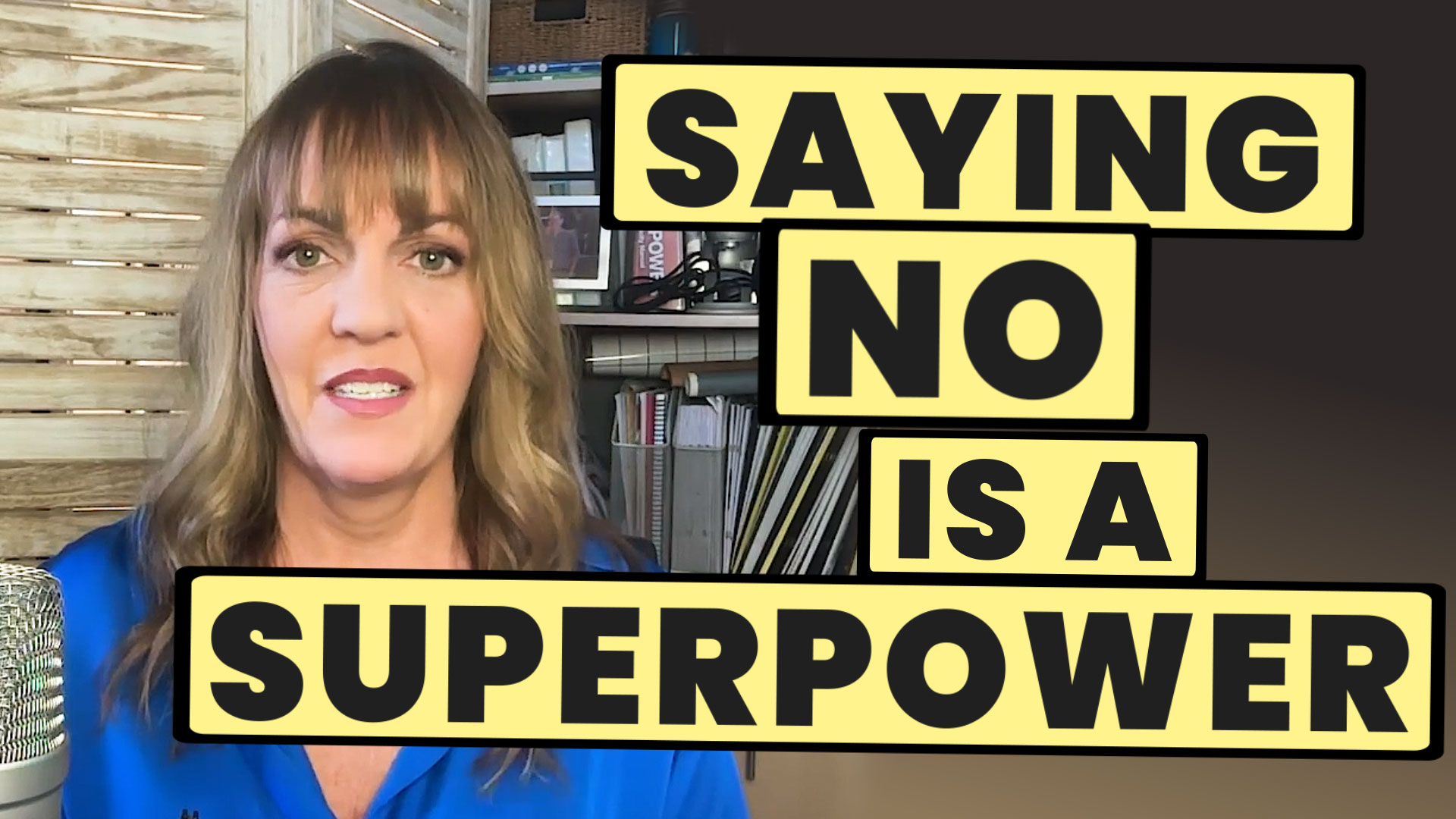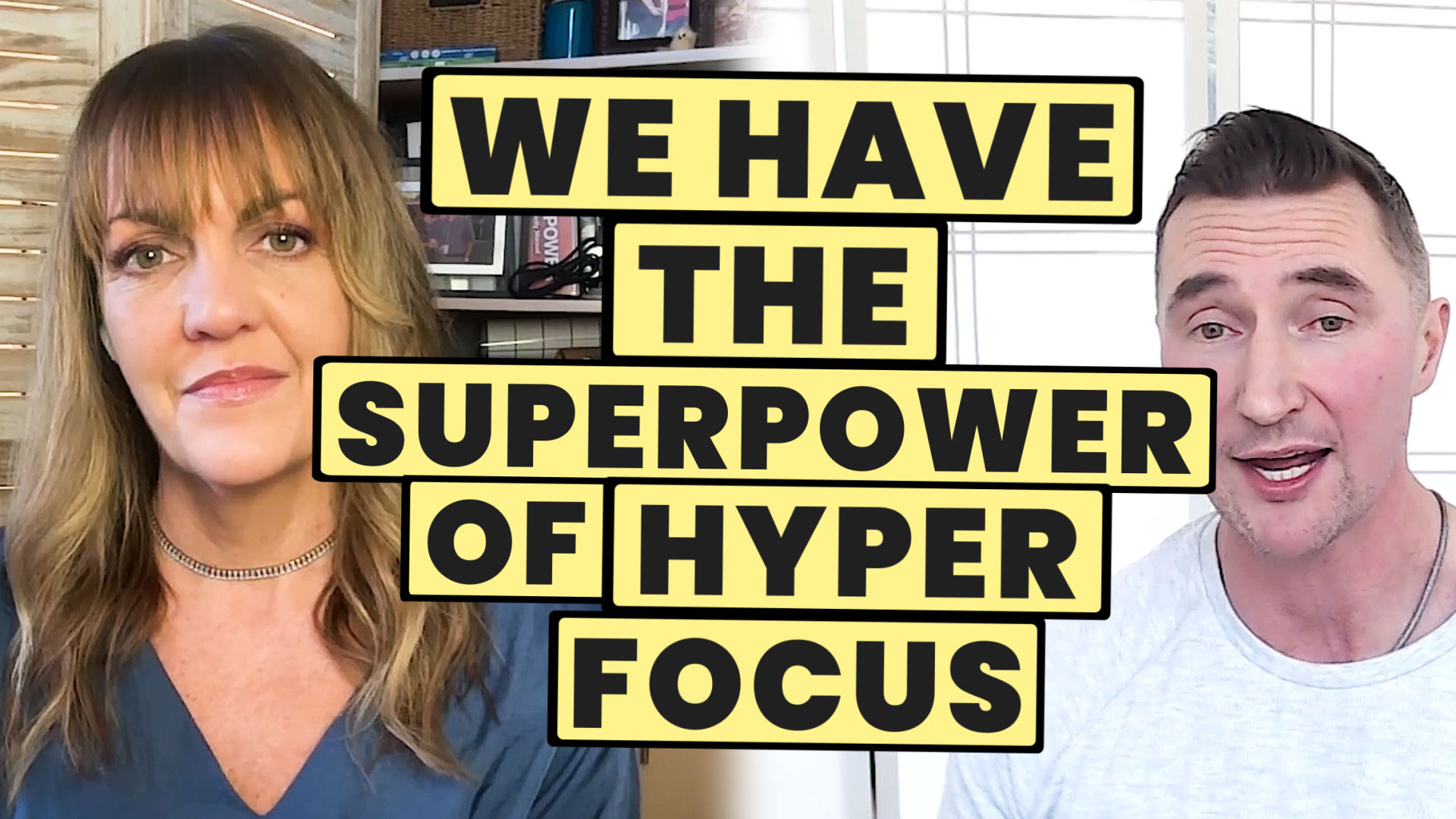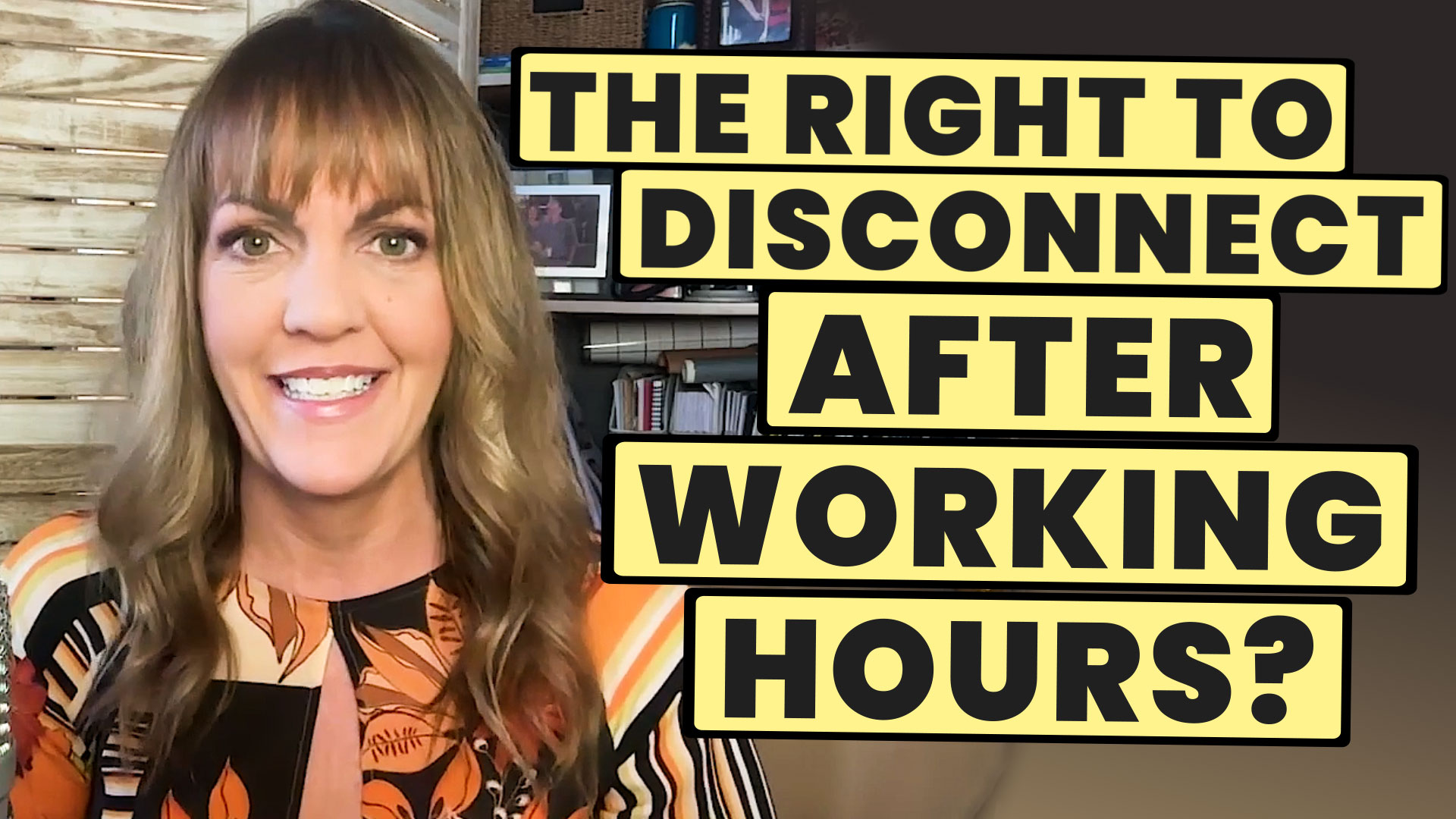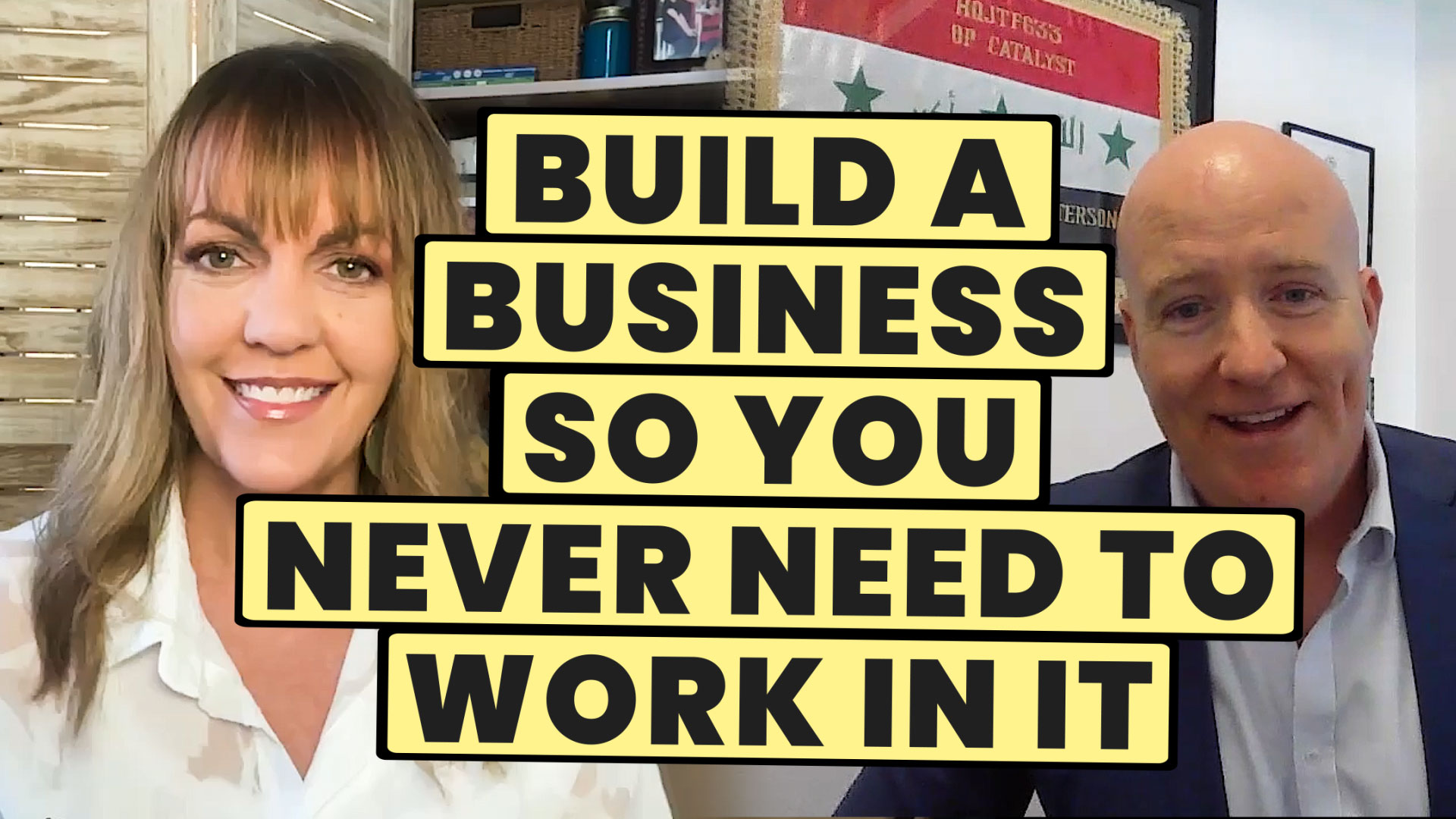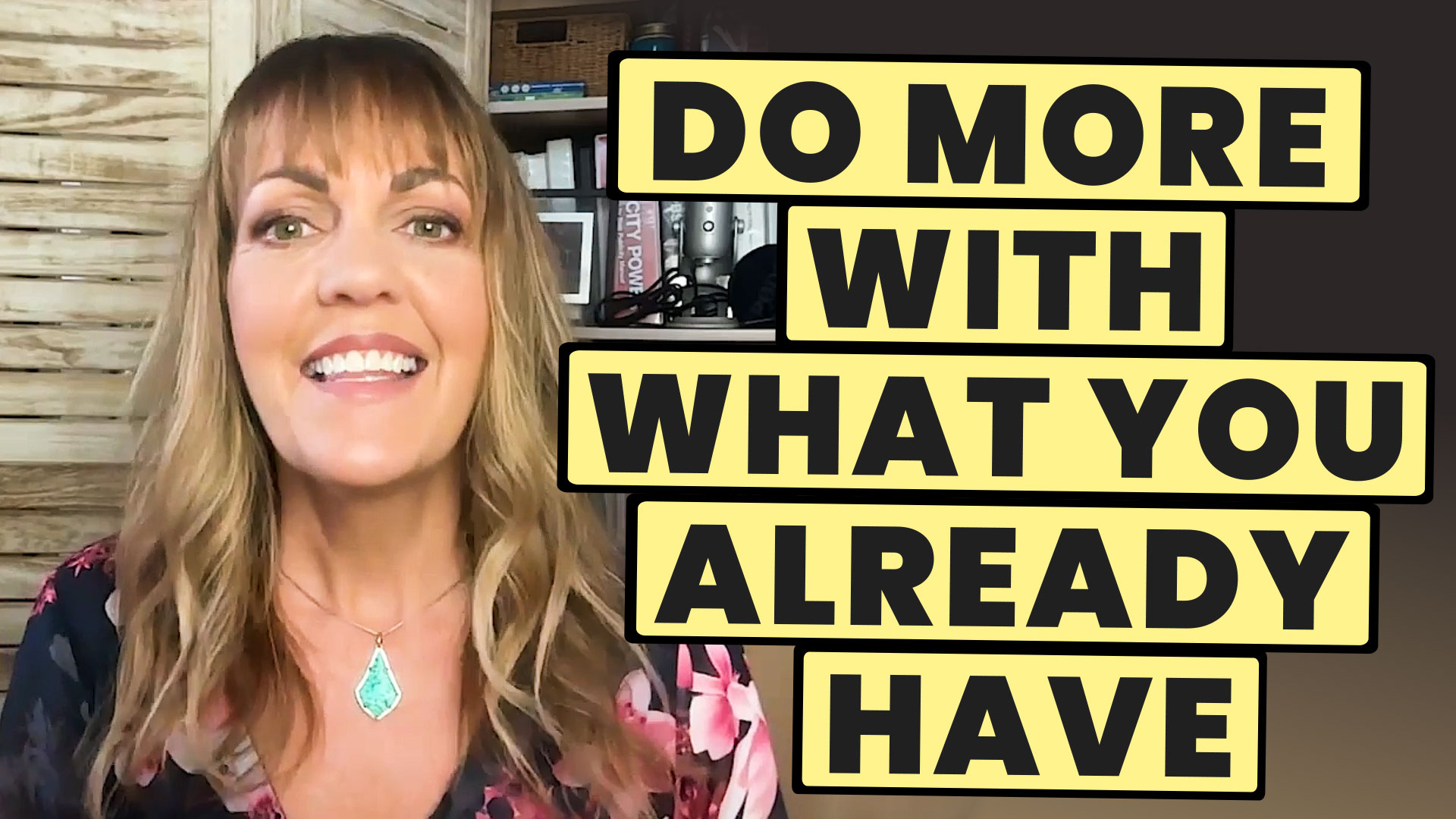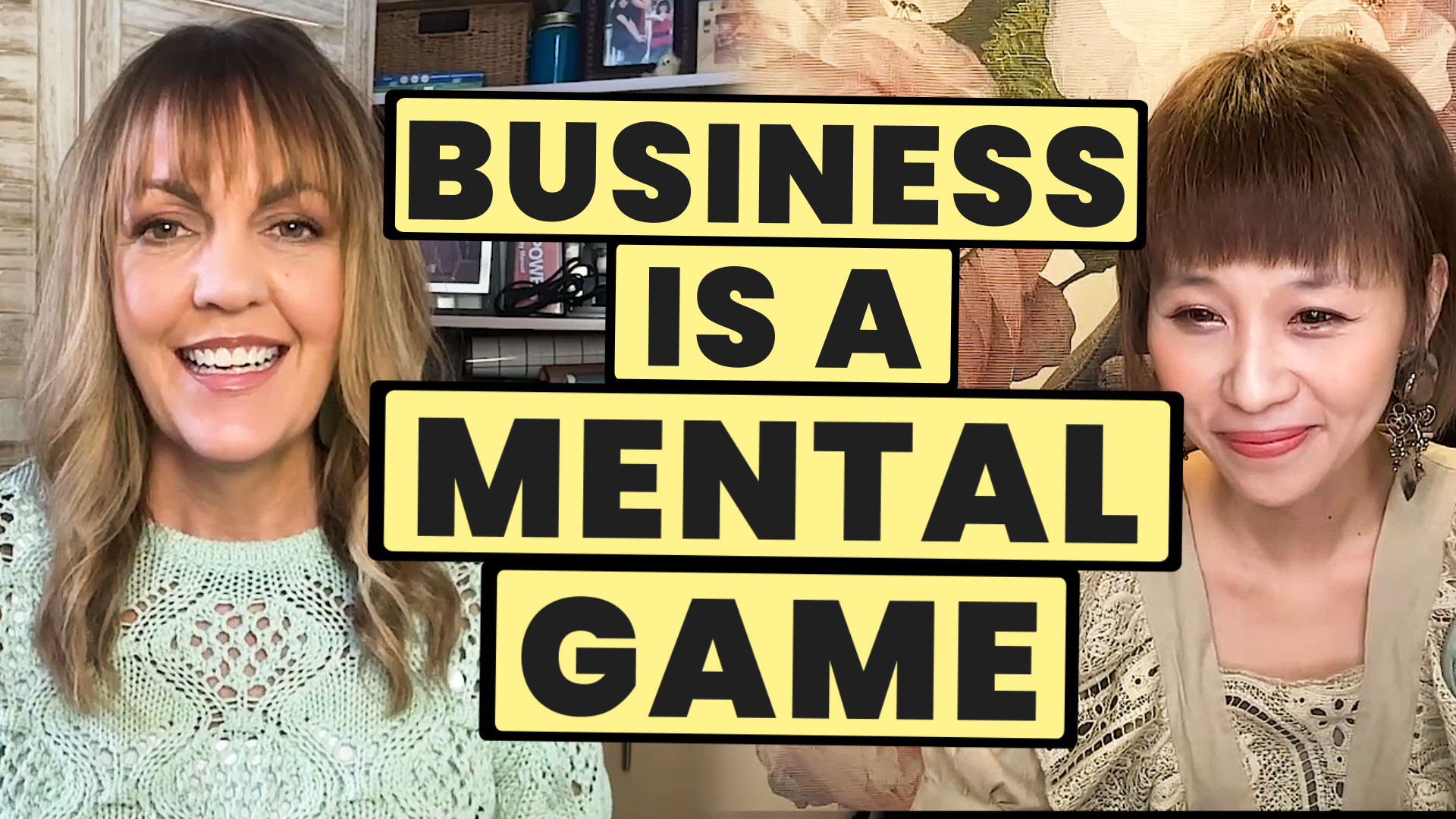Episode 37 Transcript
Heather:
Welcome to the show Sue. I'm, I'm actually really excited that you hear it because I'm going to get to talk to you about a side of your business I actually don't know about yet. So welcome. How are you going?
Sue Collins:
Yeah, good, thank you. Thanks so much for having me on. I'm also excited to be here and I'm really curious about where the conversation's gonna go. And.
Heather:
Me too. Okay. So, um, I'm not going to talk too much about what you do because I want you to tell us. So why don't you start by telling us a bit about your business and why you do what you do.
Sue Collins:
Okay, well, I'm Sue Collins as introduced, and I run an Impact Film Production House here in Melbourne. We make a lot of documentary-focused projects. The majority of our work is documentary, but exciting things coming in the script world. We're doing some script writing at the moment too, so that's exciting. And all of our film... work that we do is really about having a purpose. So it's purposeful content and impact film really means that when someone consumes a film that we've created, they want to get engaged or they're designed to help people take an action. So as opposed to passive viewing, nothing wrong with passive viewing, we all like doing that on the couch, but the content we create is much more about positive social impact, getting people involved in something, whatever that is.
Heather:
And why did you start your business?
Sue Collins:
That's a really good question. So my business partner, Mike Hill and I, we've worked together for many, many years. And when we first started working together, I was a freelancer and I was working with Mike doing a lot of action sports, pop culture, you know, really fun, exciting kind of filmmaking things, but not necessarily, you know, fulfilling in a long-term sort of way, more just, you know, you work on that and then you work on the next thing. And then we started our own company, Moonshine Agency, and we had this opportunity to work on a really different film project for us. And it was brought to us by a leader in cancer control. And he said, you know, there's millions of people around the world who can't access morphine. And we thought, well, why? And we thought, okay, well, there's a story in this. And it was more a journalistic kind of approach, I think, that we took in the initial stage. And we thought, oh, how do we tell this story? You know, it's a sensational story, and it's almost like a 60 minutes kind of thing.
Heather:
Yeah.
Sue Collins:
But as we got into it, and we learned more and more about it, and we met these incredible thought leaders around the world, and they're all specialising in what we call palliative care. And so we started learning all about this medical specialisation that I'd never personally been connected to before. And we realised that it was so much more than just access to pain relief. It was this whole other thing. And then because we couldn't get a broadcaster to commission it and all the usual pathways just were closed to us, and we were like, well, how are we going to do this? And so... we took a really different approach and we engaged aligned sponsors to get involved in the film and fund it. And the result was this amazing film called Life Before Death. And it went out and we released it differently as well. We released it on World Palliative Care Day, I think it was in like 2010 or like quite a long time ago. And it screened in over 40 countries right around the world. Yeah. And we were like, well, this has had a massive impact. This is really different. And this is really fulfilling because we started getting all this feedback as well about how people were using the film and the real world change and the difference that it was making. And we went, this is way more meaningful, we should do more of this. And so that kind of sent us on this journey and that's what Moonshine Agency now is, is an impactful production company.
Heather:
It is incredible the films that you have and we'll talk about at least one of them coming up soon. But I'd like to actually know what are your strengths? What do you do in the business? Because when you're creating films, I mean, you have the sponsors, you have the production, you have the marketing, my mind boggles with the work that you guys do. What are you good at?
Sue Collins:
What am I good at?
Heather:
Yeah.
Sue Collins:
Well, if it was a perfect world and I didn't have to do bookkeeping or any of those other business management things that we have to do, I would just do development. I'd do script writing, development, ideation. That's my happy place. That's what I love. That's what I would do. But sadly, anyone who does any kind of film producing knows that... The bulk of time is actually spent on raising finance and administration. So I wish it was a bit fun and sexier than that, but unfortunately that is. So what I love and what I'm really good at is story development, ideation, the really creative stuff. And what I do most of the time is more administrative.
Heather:
Ah, gosh. I, so the conversations I have Sue with so many people on this podcast and just in general in the business community is just that conundrum. It's like you have this gift. That's why you started your business, but then you get stuck wearing all the other hats.
Sue Collins:
That's right.
Heather:
How, how do you, I guess, I want to say, how do you handle it? But I want to go a little bit deeper into that. Um, how do you work within the two hats or different hats that you wear so you keep your passion alive and that gift that you have going?
Sue Collins:
It's really interesting you're asking me this right at this like little snapshot in time because the last couple of weeks we have been deep in you know it's like a tax offset that we have to apply to and it is deep bookkeeping it is really intensive
Heather:
Ugh.
Sue Collins:
and it is not fun so the way I've been working on that at the moment is I try and spend each morning I do something creative in the morning, even if it's just for 15 minutes or two hours, whatever I can kind of scrape out of my day. And I just try and progress one project in a creative way so that I feel like I've, you know, got a little bit of that into my day and then I'll go into the administrative work that comes after. And then it's so in ebb and flow. I think it's probably like this in any business, you know, there's different phases of where the productions are at and they require different... things and so something else that Mike and I do because we both really love script writing is we've sort of started dedicating a couple of hours every single week to writing a script. So it's taken us about two and a half years but we've finally got almost a third draft of a feature film script. So
Heather:
Oh my gosh.
Sue Collins:
yeah, so that's been fantastic. So it's a little side project but that just kind of keeps me, you know, keeps me going I guess.
Heather:
I like what you said though, that you reserve. the morning or the first part of the day and you actually block out time to maintain this part of you that needs, obviously it's a big important part of your business, but the part of you that is your passion. I mean, a lot of people unfortunately get into that reactive state in the morning. They go straight into other people's agendas and emails. And by the end of the day, they're so drained and have decision fatigue and they're just like the thing that they love to do. They keep putting on the back shelf. So I like that you flip that and that you're able to, to make that happen actually. It's good.
Sue Collins:
It's definitely in the calendar, I will say
Heather:
Yeah.
Sue Collins:
that. I absolutely have to put it in the calendar. Yep.
Heather:
You do. Everyone's everyone that I've been speaking to says the same. It's like managing time is it's no joke. I mean, it really is not. It is the key to having a life that is balanced to doing what you love. Um, and living and breathing by the self commitments in that calendar as well. It's just so important. So I want to talk about future fun projects that you're working on. What is something right now that your agency is working on? Feel this in.
Sue Collins:
Alright, so the big one that I'm really excited about right at this moment is there's a big poster right behind me for Conquering Cancer. So we produced a film, it's probably 18 months ago it came out now called Conquering Cancer and it was all about cervical cancer elimination globally and it's grown, it's not just a feature film anymore, it's recently come back from the US where we've been filming additional stories and we're going to make an American version of the film to play for American audiences and That was pretty amazing. So that's going to be coming out September ish But on top of that we're also creating two new films one on conquering skin cancer and one on conquering breast cancer So the whole collection of films is really about hopeful positive cancer stories which I know sounds like a bit of, doesn't quite fit together, positive and cancer, but we're trying to tell stories of hopeful futures. What can the world rise up to? What are the challenges and how can we overcome them? It's the approach that we're taking. And so we're just kind of getting up to speed with those at the moment. So yeah, that's really exciting.
Heather:
and. From my experience seeing what you guys do, actually your films are very empowering, even though it is, like you said, a bit of a bleak subject in some cases, but the way they're put together is inspiring. So, you know, people have hope, and I think hope is such an important thing in people's lives. So question about the whole Conquering Cancer project that you're working on. So did you write the script? Talk me through the process of bringing this to light.
Sue Collins:
So it's quite a process, creating a documentary in the way that we do it. And usually the idea, often it's not necessarily initiated by us, like a thought leader might say to us, did you know that there's this issue? And we'll go,
Heather:
Yeah.
Sue Collins:
oh, hmm, that's interesting. And then we'll go and explore it. And that's how Conquering Cervical Cancer came about, because somebody working in cancer control said, did you know they're gonna eliminate cervical cancer? And Australia's gonna be one of the first countries. to eliminate a cancer for the first time in human history. And we were like, wow, that's
Heather:
Yeah.
Sue Collins:
incredible. And then of course, the flip side to that is that a woman dies somewhere on the planet every two minutes from cervical cancer. And you go, ooh, how do we have that here where we're gonna eliminate it, but everywhere else women are dying, you know, in the hundreds of thousands every year. So how does Australia, how's Australia here? and the rest of the world is here and what can Australia, like where are we learning and where can we you know share that information so others can learn that as well. And I think I've lost track of the question
Heather:
No,
Sue Collins:
a little bit
Heather:
it's
Sue Collins:
there.
Heather:
great. You started by telling me how it came to fruition. You had a thought leader that just asked that question, just posing that question, did you know that in Australia we're no longer gonna have cervical cancer? So you get this idea, this concept, and then how does it become a film from there?
Sue Collins:
Yeah, well that's the exciting part. And so that's where you explore stories. And we've got amazing partners on Conquering Cancer as well with the various different organisations, everything from not-for-profits to philanthropic organisations to med tech companies. It's a huge collection of sponsors have come together to support this initiative. And that's really important because you don't wanna tell a story that's skewed. to represent one particular path, you need to, you know, you need to explore it from all different angles. And so that's been fantastic because the project partners are often connected to resources on the ground, so to speak, where you can go and find really good stories and work, you know, like they might have connection into a hospital in, I don't know, Malaysia, and then you can
Heather:
Yeah.
Sue Collins:
work with a specialist in Malaysia and find the story. Do you know what I mean? That's all how it all links together.
Heather:
incredible.
Sue Collins:
And then it's just about exploring, you know, it really is just following those dots. So Australia's done this here, they've got a collaboration with Malaysia, how did that come about? What are the stories there? How's that? And then you just kind of follows on.
Heather:
You know, it's fascinating. You guys is like how humble Sue is. Like seriously listened, like listen to the work that her business is doing around the world to raise awareness. And you're just like, you wouldn't have any idea just how huge the shift is by having a, just a conversation with you because you're so like lovely and approachable and, and I'm finding that some of the people making the biggest change on this planet right now have that personality and it's so incredibly refreshing to be around. So I just have to
Sue Collins:
Oh,
Heather:
point
Sue Collins:
thank
Heather:
that
Sue Collins:
you.
Heather:
out about you. Yeah, it's
Sue Collins:
Thank
Heather:
very,
Sue Collins:
you.
Heather:
very true. Um, I have to meet Mike too, because I don't know, I don't know what he's like, I'm kidding.
Sue Collins:
He's
Heather:
I'm
Sue Collins:
probably
Heather:
kidding.
Sue Collins:
pretty similar, I would think.
Heather:
Yeah.
Sue Collins:
He's also the director though, so he's a bit more bold, I think, in his...
Heather:
He's like, do this.
Sue Collins:
Yeah.
Heather:
No, I know you'd have to be in that role, I suppose. Wow, so that, yeah, that's incredible. And you guys too, the reason why Sue's on this show, not only is her business doing incredible things, and we are gonna talk a little bit about just overwhelm and stress and how she manages that as well. but Sue's actually a client of mine and I am very particular with the clients to bring on this show but there are some really incredible people in my network and I wanted to bring her to you and I wanted to chat a little bit about our working relationship as well. What have we done together? How did you, I guess here let me take a better question. How did you hear about me? When did that relationship start?
Sue Collins:
So I actually met you when I was, I guess you call it a member at the Entourage, which is
Heather:
Yeah.
Sue Collins:
like a school for entrepreneurs. So one thing that I have learned is that even though I went to university and I've got a degree and yada yada, I was never taught business management. So then I found myself running a business going... business
Heather:
Ha
Sue Collins:
and
Heather:
ha ha!
Sue Collins:
so I went to the entourage which was fantastic and I sort of spent two years just learning you know all the ins and outs and it was an amazing experience and I met you there because
Heather:
We
Sue Collins:
obviously
Heather:
did.
Sue Collins:
you're one of the instructors is that what
Heather:
I guess they call us vision partners or mentors. Yeah,
Sue Collins:
yeah
Heather:
different words.
Sue Collins:
and then I think it was about six months ago and this also fades into the overwhelm is that you know I even wrote a blog about this Filmmaking is a skill and it's a thing that you learn, the storytelling, and then there's social media. And you would think that, you know, how hard could it be to create an Instagram reel? But
Heather:
Eh.
Sue Collins:
it's not that simple. And so all of our projects rely so heavily on social media to spread the word and engage audiences. And we just weren't getting anywhere on Instagram and I couldn't, you know, I was just ringing my, you know, like, how do we get? this traction through social. And then of course I thought of you and I thought, so that's why I reached out and said, oh I need help.
Heather:
It's been such a fun project and one of the things that was huge and was music to my ears in our conversation the other day too, was that you're like, hey, Heather, I've talked for the new Conquering Cancer Project. We've spoken to the editors and they're actually gonna be making vertical videos and it's in the plan. And like, it just shows me that you now know what works on social media. Cause when we first started chatting, everything was like landscape, YouTube, you know, videos, movie videos. And so just so you guys know too, just by making little tiny tweaks, by taking landscape into square and then... vertical videos on social media, you just got to see this huge spike in engagement of the people watching and actually watching past three seconds and amazingly in Sue's case with the videos, multiple projects that they were putting out, there were like 80% of the people watching all the way through to the end on most of them, which is unheard of. People do not watch 80% of content on social media. So little tweaks, right?
Sue Collins:
Yeah, that's right.
Heather:
Yeah, and so. Like ultimately our relationship, just so you guys know, I mean, Sue has, we've done conquering cancer, um, we're working on together coming up, but I just wanted to bring also a couple of the other amazing projects too. The last one, well two that I loved, um, live the life you please. So that is sort of still going around and doing screenings. But what was that project all about?
Sue Collins:
So Live the Life You Please was, it's a beautiful film. And it's an Australian story, which is also a little unusual for us to do a completely Australian story. But because we've done so much work in palliative care and telling stories in palliative care over the last decade, and then we thought, well, we really need to tell this story in Australia because although we have an amazing medical system here in Australia, Palliative care has got a lot of myths around it. People think it's the end of life, as in literally the last few days of life. If you go to hospital and get referred to palliative care, then you're done. There's all these
Heather:
Yeah.
Sue Collins:
kind of ideas. And we went, well, this isn't really true. And if people don't understand what it is, they're not gonna ask for it. And if they don't ask for it, they're not gonna get this really important end of life care that makes such a massive difference to... people who are sick but also to their families. And so we went on a journey to learn about palliative care in Australia and we filmed the most amazing stories and someone actually described it, the presenter on the show actually described it as, it's a series of love stories.
Heather:
Yeah.
Sue Collins:
And I think that's so true. And so even though it's a deeply emotional film, it's also, I've sat in the cinema, I mean I've seen it quite a few times during the launch. And people laughing out loud and feeling really, really empowered after they see it about making choices in their own lives or with their family members. So that's been a fantastic film to put out. And you know, it's a real, for any filmmakers out there, broadcasters will still tell you, it's too hard, no one wants to hear about that. And we're still being told this by broadcasters that no one wants to talk about palliative care and yet we've just released this film nationally in over a hundred cinemas around the country, raving reviews, media everywhere. It's been a really, really positively well-received film. And if we'd listened to the broadcasters, we would not have made this film. So yeah, so it's been... And you've been very helpful with that too, helping us actually get it onto social media. So I should also point that out. That's been a really, because that kind of becoming that challenge too, how to find an audience, because it is quite a niche audience and social media was really important to that.
Heather:
I'd actually like to talk on that point. quickly too, because you just said how to find the audience. So a couple of things I love that you said. The first one was if you'd listened to the other people out there, you know, you might never have taken this project on. But with that said, the audience that I saw just from looking at the ads and the, and the reach and what was happening, um, guys on social media, there's something called, like if you are doing ads to raise awareness or, you know, get people to your website, there's something called a click through rate and a cost per click. And it's a good indication on how people are, responding with your messaging. And in this case for this specific campaign, the click through rates were ridiculously high. We're talking seven, eight, nine, 10%. Just to give you context, if you're, if you can get 1% you're doing well these days. So the fact that you, A, just listen to your gut and put this out there and B, that this message resonated and it resonated hard with your with the target market and the people that they were out there. There's a couple of great business lessons in that I suppose as well.
Sue Collins:
Yeah, definitely. And I think for anyone doing anything creative, if you believe in it and you think there's an audience for it, you shouldn't stop. You just find a different way to make it. Just find another way to do it.
Heather:
I love that you have said that. So I think we need to hear that more, more of us need to hear that more often. You know, just don't stop, find a different way of doing it. Um, I, I want to change gears a little bit and talk to you around stress and overwhelm, cause we all have it. And that's the really ultimately the goal of this podcast, the hustle rebellion, which is actually about us. joining arms as business owners around the world and sharing our stories of how we get out of stress cycles, how we deal with overwhelm, and also that there truly is hopefully a new way to do business in a way that you're not head down grinding 24 seven, not quite, but you know what I mean. So in, in your business growth, um, how do you handle those moments of, of stress and overwhelm?
Sue Collins:
It's a really interesting question and I do think it's very dependent on what is going on and what's causing the stress. So for example in the lead up to the launch of Live the Life You Please we'd had this incredible experience of a month in America, the whole of April we were in the US filming for Conquering Cancer, came back and then we were into the launch of Live the Life You Please, which was the film I was talking about on palliative care. And then Mike and I had already been pre-booked to do a week in New Zealand for a totally different project again, which was the week before the actual launch. So I just literally went from one, like I got off the plane on the way back from the US on the Sunday morning and I was at work at nine on the Monday morning and then it just didn't stop for about three weeks and I have never been so exhausted
Heather:
Yeah,
Sue Collins:
in my
Heather:
that's
Sue Collins:
entire
Heather:
a lot.
Sue Collins:
life. That was a real lesson for me where I really, you know, I was physically not doing very well. I was getting dizzy and I was just so fatigued and I realised that I can't do that again. I have to structure my time much better. It's best laid plans, always so many reasons why all these things compound on top of each other, but it really made me go, I have to be much more diligent in future about. managing my time and I think a big part of that is scheduling and getting out the big 12 month calendar and going okay what's happening when, what staff do we need when, how much lead time do we need to actually recruit people for things and so it's that really big picture planning but then it's also the everyday and making sure you know okay I'm as we talked about before I'm going to do something creative first thing and I'm going to have a lunch break. and I'm going to finish and I'm going to do exercise, whether that's Pilates or whatever else it is, and I will finish work at X time and I will finish work at that time. And then it's, do you know what I mean? I think you have to have some real boundaries.
Heather:
You do.
Sue Collins:
Yeah.
Heather:
You do. A big theme in this show is most people are really, well, not really good, but getting better at saying no. And that's sometimes the hardest, hardest thing when you're, especially as an entrepreneur, you're presented with a lot of opportunities, especially as you get more and more successful. People are emailing you, Hey, can you know, can we do this together? This and, and at first, the little you. The little baby business owner is like, oh my gosh, people want to do stuff with me. And you're like, yes, great. But you have to learn at one step in your journey that no is actually more important than yes.
Sue Collins:
And it's really hard, it's really, because you're, I think, I sense you're probably like me, like being busy is, like that's, you know, it's, you know, I think Brene Brown, do you know Brene Brown,
Heather:
Yeah, oh yeah,
Sue Collins:
yeah,
Heather:
she's great.
Sue Collins:
she's amazing, and she said something about, you know, when someone says play, like it used to just like, almost like she could feel just this stress rising up in her when people would say, you know, you need some playtime, you need some downtime, because it was so, just so completely the opposite of getting things done. And you just get into, I've just got to get things done. I'm just, I'm busy and I've got to, you know, I've got to get this and this and this. And the idea of stopping feels really unnatural. So it's about learning to go, it's okay to do nothing sometimes. It's okay to read a book and it's okay to just hang out with your friends and. You're not being
Heather:
It's...
Sue Collins:
unproductive, it's a different type of productive.
Heather:
Yeah, we've like, we've trained ourselves over the years, I think, um, so whether it's society or, um, our mentors or whatever it is, we've trained ourselves that sort of, you have to keep working. You have to keep pushing through it, get through it, you know, um, work. What was the old mentality of sort of our parents is like, you have to work hard. Um, that, that stuff still lives within a lot of us. And I remember for me, the first step for me to get out of a cycle. So I had another business, another agency, and it was. I let it rule me. I couldn't sleep. I had heart palpitations making myself sick. And ultimately I remember somebody said like, you can go out with your friends on the weekend. You can have a lunch. It's
Sue Collins:
Peace.
Heather:
okay. But I felt so guilty. I was so ingrained in that cycle of sort of self abuse that I would literally be at the table and I couldn't enjoy myself. So my first step in my first goal was, okay, go out to lunch. put your phone upside down, just focus on enjoying yourself for one hour. And I literally had to start there to change my life.
Sue Collins:
Yeah,
Heather:
So it's full on.
Sue Collins:
yeah.
Heather:
Um, yeah.
Sue Collins:
You have to teach yourself to
Heather:
You,
Sue Collins:
take a step
Heather:
you.
Sue Collins:
back, yes.
Heather:
You do. And just like what you said, it's, it's like, I love that you've come out of that three months of hard slog and you're like, okay, never again, or three weeks. And you're like, never again, I'm going to have to put into plan, you know, an action to make this happen. So recognizing the fact that, you know, you get into these cycles and we all do, there's moments, but how are you going to not make them happen so profoundly again in the future?
Sue Collins:
That's right. And I think as you say that, the other thing that's coming to mind is prioritizing. So like that's what I really had to do through that stretch is go, okay, so the things that I had on my list, how much are they important? And what ones can just go away, maybe for good, or till next week. And
Heather:
Yeah.
Sue Collins:
once I started doing that, that alleviates a lot of stress because you think, Okay, I really wanted to, you know, do X, Y, and Z, but it wasn't actually gonna progress what I'm trying to do right now, so maybe it's not that important. And so I think just having that, yeah, really helps.
Heather:
really good advice, really good advice. And if somebody you guys that is holding putting together a film to go out globally can do this, you can do it. So as we start to wrap up, how with the Conquering Cancer Project that you're working on right now, if people want to get involved and this is sort of tugging at their heartstrings. And let's be honest, it probably will for most of the population, because we ourselves have been affected personally or family members. How would they get involved?
Sue Collins:
Well, the first thing I always say is that if you've got a cervix, go and get your screening, like regardless of the Conquering Cancer Project, but just go and do that because that is the best self care you can do to prevent yourself getting a serious diagnosis is just make sure you do that. And if you've got children, get them vaccinated. Then the next thing you can do is I would love it if you can join us on Instagram over at Conquering Cancer, Conquering Cancer Campaign and There's so much content on there and also on the website that you can explore, loads of short films, lots of information and ways to get involved. So that's what I would really recommend for people to do. First, self-care, go and get your cervical screening, really important, don't put it off. And the second one is, come and join us.
Heather:
Definitely do you guys because of the plans coming up in the future for the conquering cancer movement is massive. And you'll want to be along for that ride and see what Sue's up to and all the beautiful storytelling and video clips and things that they have planned. It's well worth checking them out over on definitely Instagram or Facebook. If you love Facebook as well. So as we start to close down in this conversation, do you have any last tips or thoughts just overall on overwhelm stress and hustle?
Sue Collins:
I think someone much wiser than me said something about, it's going to happen, just gotta be patient. You know, we all want everything to happen right now, but if you, you know, you just keep going bit by bit by bit, and it's amazing what you've achieved in two weeks, in a month, in three years. And when I look back on this business, you know, I think this is our 13th year, and we've produced seven impact films, and we've got three or four in the pipeline, and I go. That's huge. It's huge. But we don't ever stop and kind of look at the successes we've had and how much we've achieved. We just want to do everything right now. So I think it's just remembering that if you just keep going, it might take a year, but it will happen. It doesn't have to happen right now. And that's quite relieving, I find.
Heather:
Really great way to lead the conversation. So guys, make sure to come over to the hustlerebellion.com. We have the show notes, we have the links to Sue's different projects and websites. You can check out what she's up to and joining on the movement and the conversation over there as well. And thank you Sue for being on the show.
Sue Collins:
Thank you for having me.
